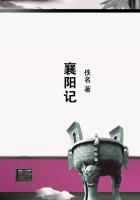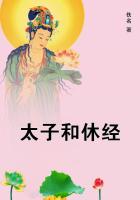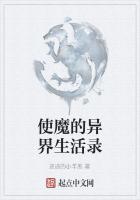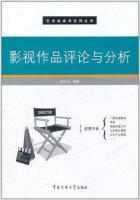4. Love. Thus any one reflecting upon the thought he has of the delight which any present or absent thing is apt to produce in him, has the idea we call love. For when a man declares in autumn when he is eating them, or in spring when there are none, that he loves grapes, it is no more but that the taste of grapes delights him: let an alteration of health or constitution destroy the delight of their taste, and he then can be said to love grapes no longer.
5. Hatred. On the contrary, the thought of the pain which anything present or absent is apt to produce in us, is what we call hatred.
Were it my business here to inquire any further than into the bare ideas of our passions, as they depend on different modifications of pleasure and pain, I should remark, that our love and hatred of inanimate insensible beings is commonly founded on that pleasure and pain which we receive from their use and application any way to our senses, though with their destruction. But hatred or love, to beings capable of happiness or misery, is often the uneasiness or delight which we find in ourselves, arising from a consideration of their very being or happiness. Thus the being and welfare of a man's children or friends, producing constant delight in him, he is said constantly to love them. But it suffices to note, that our ideas of love and hatred are but the dispositions of the mind, in respect of pleasure and pain in general, however caused in us.
6. Desire. The uneasiness a man finds in himself upon the absence of anything whose present enjoyment carries the idea of delight with it, is that we call desire; which is greater or less, as that uneasiness is more or less vehement. Where, by the by, it may perhaps be of some use to remark, that the chief, if not only spur to human industry and action is uneasiness. For whatsoever good is proposed, if its absence carries no displeasure or pain with it, if a man be easy and content without it, there is no desire of it, nor endeavour after it; there is no more but a bare velleity, the term used to signify the lowest degree of desire, and that which is next to none at all, when there is so little uneasiness in the absence of anything, that it carries a man no further than some faint wishes for it, without any more effectual or vigorous use of the means to attain it. Desire also is stopped or abated by the opinion of the impossibility or unattainableness of the good proposed, as far as the uneasiness is cured or allayed by that consideration. This might carry our thoughts further, were it seasonable in this place.
7. Joy is a delight of the mind, from the consideration of the present or assured approaching possession of a good; and we are then possessed of any good, when we have it so in our power that we can use it when we please. Thus a man almost starved has joy at the arrival of relief, even before he has the pleasure of using it: and a father, in whom the very well-being of his children causes delight, is always, as long as his children are in such a state, in the possession of that good; for he needs but to reflect on it, to have that pleasure.
8. Sorrow is uneasiness in the mind, upon the thought of a good lost, which might have been enjoyed longer; or the sense of a present evil.
9. Hope is that pleasure in the mind, which every one finds in himself, upon the thought of a probable future enjoyment of a thing which is apt to delight him.
10. Fear is an uneasiness of the mind, upon the thought of future evil likely to befal us.
11. Despair is the thought of the unattainableness of any good, which works differently in men's minds, sometimes producing uneasiness or pain, sometimes rest and indolency.
12. Anger is uneasiness or discomposure of the mind, upon the receipt of any injury, with a present purpose of revenge.
13. Envy is an uneasiness of the mind, caused by the consideration of a good we desire obtained by one we think should not have had it before us.
14. What passions all men have. These two last, envy and anger, not being caused by pain and pleasure simply in themselves, but having in them some mixed considerations of ourselves and others, are not therefore to be found in all men, because those other parts, of valuing their merits, or intending revenge, is wanting in them. But all the rest, terminating purely in pain and pleasure, are, I think, to be found in all men. For we love, desire, rejoice, and hope, only in respect of pleasure; we hate, fear, and grieve, only in respect of pain ultimately. In fine, all these passions are moved by things, only as they appear to be the causes of pleasure and pain, or to have pleasure or pain some way or other annexed to them. Thus we extend our hatred usually to the subject (at least, if a sensible or voluntary agent) which has produced pain in us; because the fear it leaves is a constant pain: but we do not so constantly love what has done us good; because pleasure operates not so strongly on us as pain, and because we are not so ready to have hope it will do so again.
But this by the by.
15. Pleasure and pain, what. By pleasure and pain, delight and uneasiness, I must all along be understood (as I have above intimated)to mean not only bodily pain and pleasure, but whatsoever delight or uneasiness is felt by us, whether arising from any grateful or unacceptable sensation or reflection.
16. Removal or lessening of either. It is further to be considered, that, in reference to the passions, the removal or lessening of a pain is considered, and operates, as a pleasure: and the loss or diminishing of a pleasure, as a pain.
17. Shame. The passions too have most of them, in most persons, operations on the body, and cause various changes in it; which not being always sensible, do not make a necessary part of the idea of each passion. For shame, which is an uneasiness of the mind upon the thought of having done something which is indecent, or will lessen the valued esteem which others have for us, has not always blushing accompanying it.


